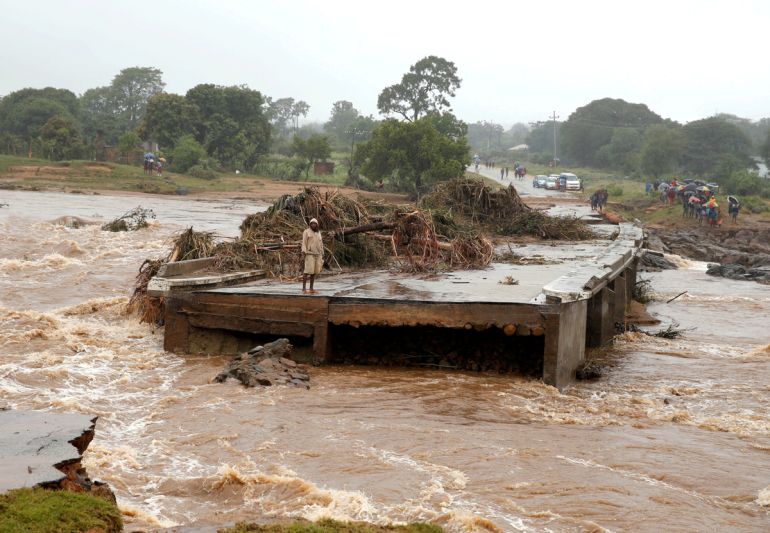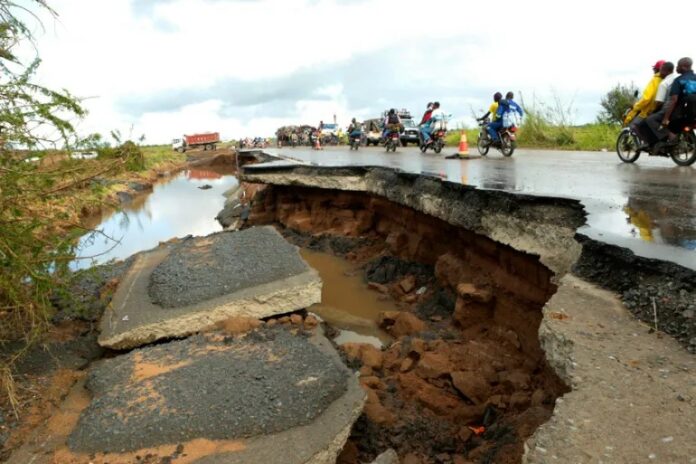For the past 10 years, Trymore Wadyachitsve has lived in regret since being displaced by floods that hit the Tugwi Mukosi area in Zimbabwe, forcing him to relocate to Chingwizi, a community 500km away from Harare, the Zimbabwean capital.
It was in February 13, 2014 when the heaviest rain in 40 years caused the Tugwi Mukosi area to flood, displacing 60,000 people who were living in and around the area. The flood was caused by the spiking water levels at the dam which was still incomplete at the time. As a result, the government declared a state of emergency and launched rescue and relief efforts, with the military playing a crucial role in the process.
Relocated to sites like Chingwizi in Mwenezi District, Wadyachitsve and many others found it difficult to adapt to their new location. He described his old home as being in a good area with green pastures for livestock and nearby rivers, making it a more habitable place to live.
The new location, however, did not offer the same benefits. Many affected individuals are struggling to make a living, with limited access to water and few opportunities for agriculture. Wadyachitsve now lives in a mud and grass-thatched house, a far cry from his former home in Tugwi Mukosi, which was a brick, asbestos-roofed, two-bedroom house.

‘Life is just hell here’
As a result of climate change-induced droughts and events like 2019’s Cyclone Idai, life has become even more difficult for the residents of Chingwizi.
Irregular rainfall patterns have led to water shortages, impacting agriculture, industry, and domestic water supplies. The completion of the dam near Chingwizi was intended to address these water scarcity issues and provide irrigation to support agriculture. However, the dam has had a negative impact on the lives of those living around it.
“Life is just hell here,” remarks Sonia Madhuva, a resident of Chingwizi. The promised land allotments after the displacement did not materialize, leaving many individuals without the means to grow crops and earn a living. Many have lost their livestock and struggle to access clean drinking water. There are high levels of bitterness and salinity in the water, making it difficult for consumption.
Additionally, the lack of proper infrastructure in Chingwizi, including limited access to education for high school students and the rising incidence of early marriages, have added to the challenges faced by the displaced community.
Land reclamation
This situation has reignited the debate around land redistribution in Zimbabwe. The historical context of land dispossession and alienation of the local population from their land has created an ongoing challenge.
After displacing people from their land, the government’s compensation efforts have been widely criticized, with many individuals feeling cheated by receiving compensation in Zimbabwe dollars instead of US dollars as promised.
Overall, the residents remain in a state of limbo, waiting for the justice and compensation they deserve. Displaced, disillusioned, and with nowhere to channel their demands for justice, the residents of Chingwizi continue to fight for their right to reclaim their land.
As for Wadyachitsve, the flooding of his home has become a symbol of the broken promises made by the government. Despite the challenges, he remains hopeful and determined to reclaim the land that was once his home.

